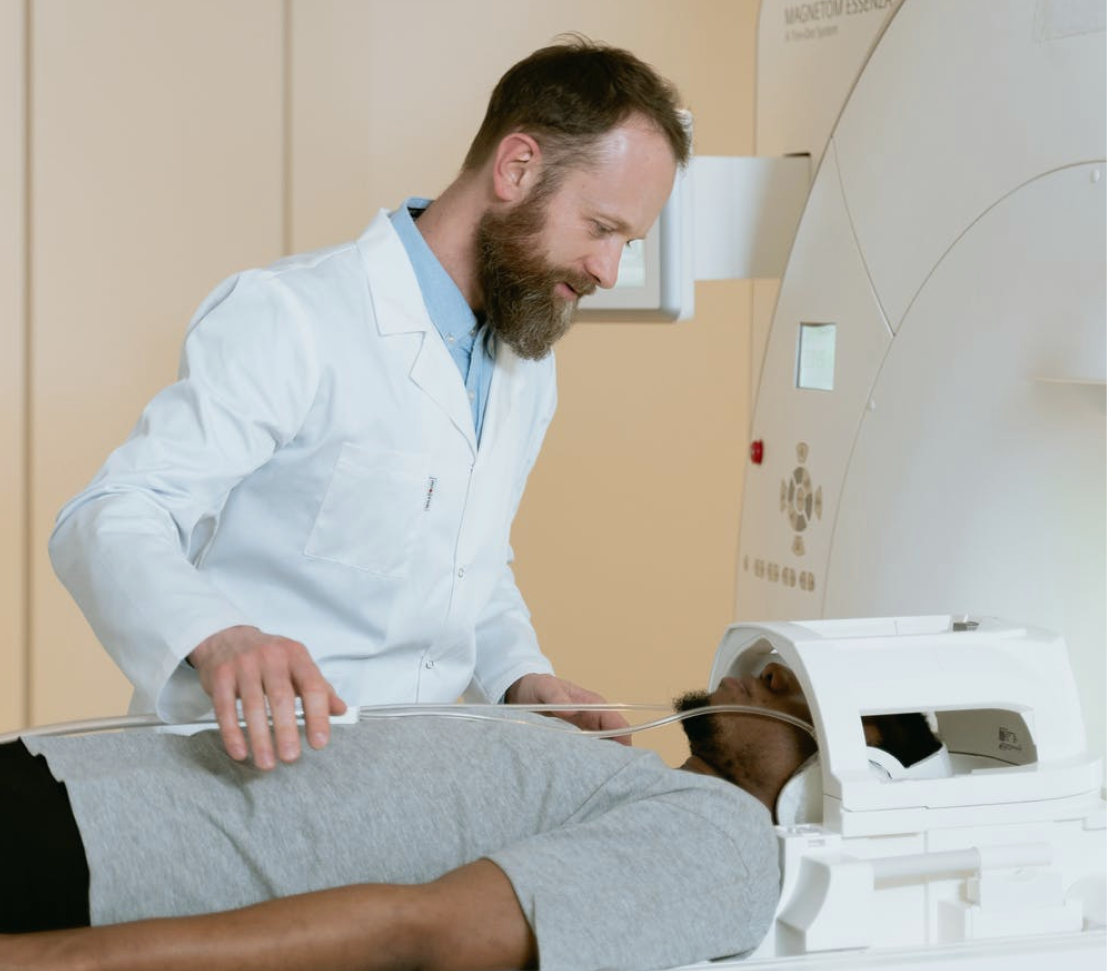Beat disease with early detection
Adopting a preventative approach to your wellbeing means you are always one step ahead.

Here are some of the questions we frequently get asked. Don’t see your question here? Please contact us.
There is no risk of exposure to radiation during an MRI procedure because radiation is not used. However, due to the use of a huge magnet, patients with the following may not have an MRI scan:
MRI may also be harmful with internal metallic objects, including bullets, shrapnel, surgical clips, screws, metal sutures, wire mesh, plates or pins. If in doubt, we invite you to discuss this further with your Full Body Scan consultant.
Our radiology partners have dedicated radiology technicians explicitly trained to perform the Full Body Scan protocols.
When you arrive for your scan, let the front desk staff know that you are a Full Body Scan client and you will receive the best standard of care. Your pre-completed paperwork will be ready to sign.
The radiology technician will then guide you to your scan. With an MRI (a giant magnet), please remember to place all metal objects in the locker provided.
If you are pregnant or have any implants (cochlear, pacemakers, wire mesh, or any other type of iron-based metal implants), you may not have an MRI scan. Certain implants are acceptable, so you must discuss any concerns around implants or previous procedures with your Full Body Scan clinical advisor.
Full Body Scan screens adults (18+) for early signs of disease or cancer and is for people who are keenly proactive about health and their body. The MRI accurately scans your major organs (not the breasts, lungs, or heart) from the top of your head to the base of your pelvis.
Full Body Scan screens adults (18+) for early signs of disease or cancer and is for people who are keenly proactive about health and their body. However, if you’re already experiencing a specific symptom, you may wish to consider seeking a focused evaluation.
Just as no medical study is 100% perfect, a normal scan does not guarantee there is no cancer. A very early cancer may need time to grow in size before it’s detectable on a scan. However, a Full Body Scan is highly effective to screen for abnormalities.
While MRI visualises potential cancers in the body, there are two types of lesions/growths it is not so great at:
Once a year is a recommendation so that we can monitor any specific issues and your overall health.
We have over 32 locations across the UK and more on the way. Contact us directly for specific details.
Although MRI scans do not use radiation (potentially harmful to unborn babies, the scan is not recommended during pregnancy. Therefore, you should speak to your Full Body Scan clinical advisor if you believe there’s a chance you may be pregnant.
The Full Body Scan does not include breasts because MRI breast imaging requires specialised breast coils and IV contrast.
Images from a Full Body Scan help screen for cancerous growths; however, full body scans can also provide false positives (false alarms). This is why all scans by Full Body Scan are followed by a post-scan review with a clinical advisor.
While MRI does detect musculoskeletal conditions (joint, limb, cartilage and gross spinal issues), the Full Body Scan is not a dedicated spinal MRI. For a diagnostic spinal MRI, please visit our sister site.
The Full Body Scan MRI is only for people aged 18 and over.
MRI scanning of the heart involves particular work required by a dedicated cardiac MRI, and this is not included in the full body scan. For a dedicated diagnostic cardiac MRI, please visit our sister site.
Adopting a preventative approach to your wellbeing means you are always one step ahead.
